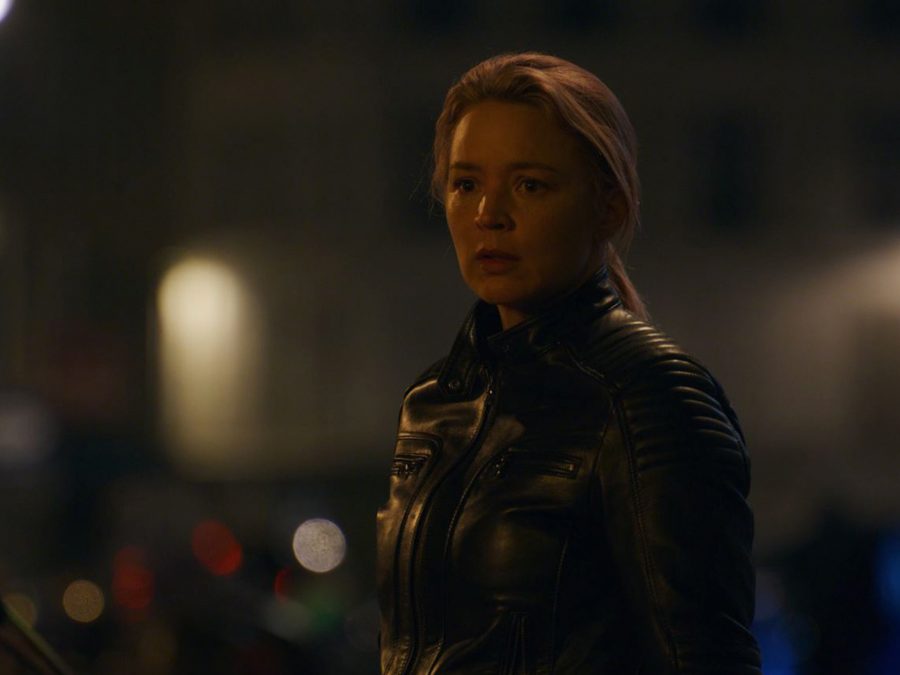In a new series, we’re celebrating the films we loved that aren’t likely to dominate the awards race. Over the new few weeks, our writers make passionate arguments for the performances and craft that stood out to them, from blockbusters to arthouse and everything in between.
Awards for acting sadly don’t always – or even often – go to the best performances of the year, but rather to the “most” performances. To the actors straining so hard to show audiences the work they put into their role, or campaigning relentlessly across Hollywood’s press circuit. Perhaps it’s actually effort and not achievement that voting bodies value most highly when assessing performance.
Take the two frontrunner female performances of this year: Michelle Yeoh as Evelyn Quan Wang in Everything Everywhere All At Once and Cate Blanchett as Lydia Tár in TÁR. Both actresses give finely nuanced performances and they are good films, but in their own ways, each is the most attention-seeking, affirmation-demanding performance showcase of its actress’s career. TÁR even opens with a lengthy list of the character’s exceptional accomplishments – practically an author’s note as to why the audience should care about her.
I’m not a critic who believes that subtlety and restraint automatically make a performance better. Maximalism, maudlin emotionalism, and even didacticism all have their place in cinematic storytelling, but it is clear that certain character types attract praise over others. The subtle, grounded, self-effacing protagonist, without any striking tragic flaws who embarks on a relatable human journey just doesn’t excite the way a multiverse-jumping supermom or womanizing megalomaniac composer do.
But — so the critic’s impotent cry always goes — it should. Case in point: Virginie Efira, the ravishing Belgian actress who broke through to international audiences in 2016 with a small role in Paul Verhoeven’s Elle, and cemented her status as one of the most versatile and exciting stars of the contemporary French film scene with her leading role in his next film Benedetta.
For Efira, a former weather forecaster and host of American Idol-type programs in Belgium, to break through a crowd of actresses with a higher density of raw talent than can be found most other national scenes right now (think Laure Calamy, Léa Seydoux, Marion Cotillard, Noémie Merlant, and that’s just the younger cohort) is impressive. That she did so firmly past ingénue age, the age where too many actresses are offered their most challenging and diverse parts, is even more astonishing.

Efira starred in a whopping four films that premiered in some form last year, but it’s not on the basis of hard work that she deserves the highest honors of her profession for her efforts. Across these four films — Régis Roinsar’s Waiting for Bojangles, Serge Bozon’s Don Juan, Alice Winocour’s Paris Memories, and Rebecca Zlotowski’s Other People’s Children – Efira fully manifests and demonstrates a complete, dextrous control over what every performer needs to transcend the the label of mere “actor” and become a star: her star persona. That is, as Richard Dyer would put it, the idiosyncratic and invigoratingly clear social type or cluster of ideologies that Efira’s very presence on screen reflects that hasn’t been reflected before, to an audience who has been hungry for it.
In these last two films in particular, Efira crafts such deeply faceted, viscerally textured portraits of ordinary women (just the kind you might know, see on the street, or even be) that her performances ascend to the level of the sublime, transmissions of pure feeling.
Paris Memories follows Mia, a woman recovering from a terrorist attack inside a Paris restaurant (Winocour based her film on accounts from her brother and other survivors of the horrific 2015 Bataclan shootings). The shock of violence deadens her senses, cottoning over her memory, which eventually pries her away from her current partner (Grégoire Colin) and sets her on a rocky, riveting path toward re-integration. Other People’s Children tells the story of Rachel, an English teacher who strikes up a romance with Ali (Roschdy Zem) at guitar lessons. Rather than focusing on their waxing and waning affections, director Zlotowski pans to Rachel’s relationship with Ali’s young daughter Leila – sometimes ecstatic, sometimes fractious, and always laced with the indefinable melancholy of the step parent.
Both Mia and Rachel are augured into the crucible of midlife angst. The pain of bowing in and out of relationships has lost the delicious edge that comes with youthful freedom from responsibility. Career has calcified around both characters like limestone, and they both wonder what would happen if they broke free. And both women are approaching the precipice past which pregnancy would be impossible, so motherhood weighs heavy on the mind. But here is the unique spark that makes Efira’s screen presence so incandescent: she navigates each journey with a kind of grateful curiosity. An openness to experience that has been weathered but not compromised by life’s tougher passages. Efira’s expressive face is both pillowy and feline, her fennel-seed eyes always betraying a kind of wry warmth even in the midst of humiliation, terror, and despair.
Efira can exude both innocence and experience simultaneously, both confidence and selfless humility. Her innate poise and affability recalls Ingrid Bergman, and like Bergman, Paris Memories and Other People’s Children herald that this middle passage may be the most extraordinary period of her career.
The post Why Virginie Efira should win the Best Actress Oscar appeared first on Little White Lies.


0 Comments